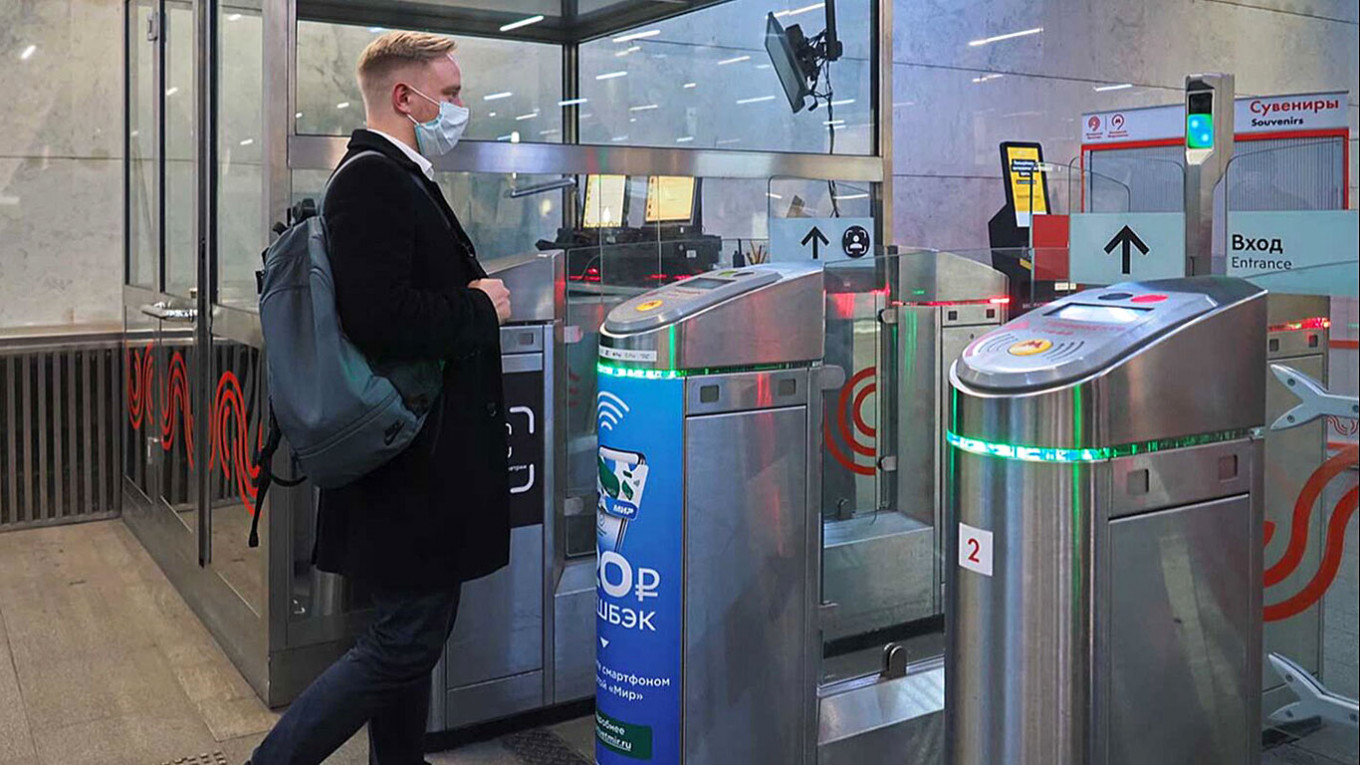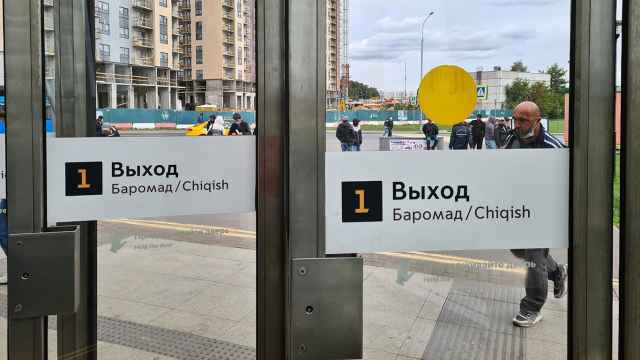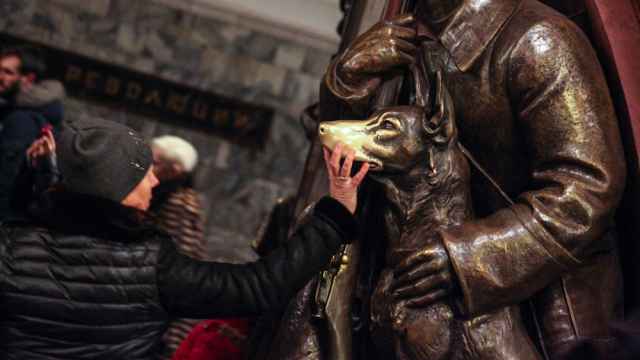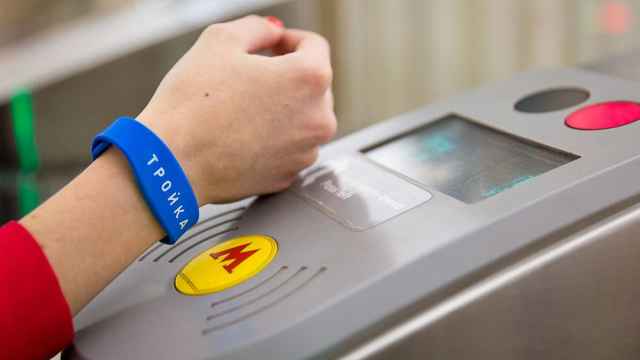The Moscow Metro on Friday rolled out what authorities have touted as the world’s first fare payment system based on facial recognition technology.
The cashless, cardless and phone-less system, called “Face Pay,” has been fitted at special turnstiles across the Russian capital’s more than 240 metro stations.
“To enter the metro, passengers won’t need a card or a smartphone — just look at the camera on the turnstile,” said Maxim Liksutov, deputy mayor in charge of transport.
“You won’t need to touch your smartphone or any other surfaces,” Liksutov added, referencing rising concerns about the spread of the coronavirus in the capital amid Russia’s record-setting daily case and death numbers, low vaccination rates and lax enforcement of mask-wearing rules.
To activate Face Pay, passengers will need to connect their photo, bank card and transit card, known as a “Troika” car, to the service through the Moscow Metro’s mobile app.
Liksutov said passengers’ data will be “securely encrypted,” but activists have raised privacy concerns. “The camera on the turnstile reads a biometric key, not a face image or other personal data,” said Liksutov.
He forecast that up to 15% of metro passengers will regularly use Face Pay in the next three years.
“Moscow is the first city in the world where the system is working on such a scale,” he added. “There are no equivalents of Face Pay in terms of quality and ease of use for passengers anywhere in the world.”
Authorities in the Russian capital have already widely deployed facial recognition technology across the capital, with a network of almost 200,000 surveillance cameras used to identify criminal suspects.
Activists have expressed fears that authorities will use facial recognition cameras as a surveillance tool.
The debate reignited this week after Russia’s Kommersant business daily reported that users’ photographs uploaded to a website that provides public services for Moscow residents will be automatically shared with law enforcement authorities.
The Moscow mayor’s office denied the report, but the Kremlin said that security officers already have legal access to the private data stored on Russia’s public services websites.
A Message from The Moscow Times:
Dear readers,
We are facing unprecedented challenges. Russia's Prosecutor General's Office has designated The Moscow Times as an "undesirable" organization, criminalizing our work and putting our staff at risk of prosecution. This follows our earlier unjust labeling as a "foreign agent."
These actions are direct attempts to silence independent journalism in Russia. The authorities claim our work "discredits the decisions of the Russian leadership." We see things differently: we strive to provide accurate, unbiased reporting on Russia.
We, the journalists of The Moscow Times, refuse to be silenced. But to continue our work, we need your help.
Your support, no matter how small, makes a world of difference. If you can, please support us monthly starting from just $2. It's quick to set up, and every contribution makes a significant impact.
By supporting The Moscow Times, you're defending open, independent journalism in the face of repression. Thank you for standing with us.
Remind me later.






